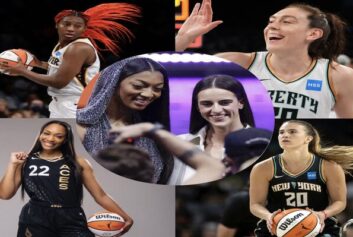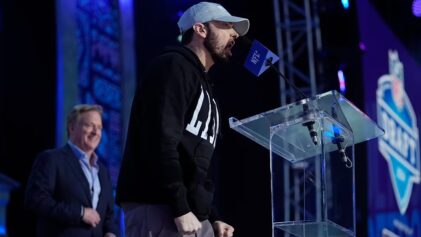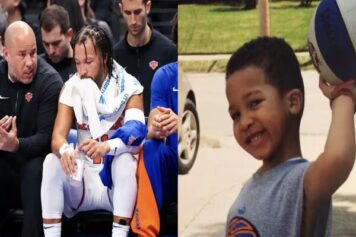Mannie Jackson, who’ll be inducted into the Naismith Memorial Basketball Hall of Fame on Friday, is probably one of the least known but most important individuals the game has ever known .
Born in Illmo, Missouri on May 4, 1939, Jacksons maternity ward and early living situation was on the inside a railway boxcar. At the age of 3, he saw his situation change significantly when parents moved to Edwardsville, where his father worked in the automotive industry.
As he grew into maturity, the world around him didnt seem capable of housing his ambition and drive. His father Emmett provided a vibrant, resilient example of the type of mettle a brother had to have to get by back then, working two jobs while studying to become a teacher after serving in a segregated military.
They say the apple doesnt fall far from the tree, and the impact that the elder Jackson would have on his son would manifest sooner rather than later.
“He was an inspiration to me,” Jackson once said. “… Here’s this guy who came out of the military after the war, had three kids, worked two jobs, went to college, and he did all this in the most racist part of the world you can be in. He never lost his drive.”
2015 NCAA Theodore Roosevelt Award recipient Mannie Jackson
Theodore Roosevelt Award winner Mannie Jackson, a graduate of the University of Illinois where he competed in basketball, went on to a successful career as an entrepreneur and owner of the Harlem Globetrotters.
Mannie would attend Edwardsville High as one of a second group of black children who were allowed to attend the newly desegregated school.
In 1956, he led the basketball team to the state championship game, where they would eventually lose to Rockford West. The first team All-State selection would win a full ride to the University of Illinois on a basketball scholarship as the first black player to suit up for the Fighting Illini.
He and Govoner Vaughn would be the first black players to start for U of I as well. They would also be the first black players to letter in basketball. Throughout his collegiate career, Jackson would later describe incidents in which he faced racism from both fans and students.
Jackson would earn All Big Ten honors in 1959 and 1960, along with All-American honors in 1960 as well. Upon graduating from the college, he was cut by the New York Knicks. But the Harlem Globetrotters were happy to have him. However, his pro career was short-lived, as he would leave the team in 1964 to work for General Motors while studying economics.
Many of the attributes that made Jackson an outstanding teammate and leader on the basketball court became immediately apparent in the corporate world.
He would later become a founding member of the Executive Leadership Council, a group of black executives from various industries that build ties with one another for the betterment of all.
1993 would see life come full circle for Jackson when he became the first black owner of a major sports team when he purchased the franchise that he formerly played for, the Harlem Globetrotters.
Mannie Jackson: From Boxcar to Boardrooms
This new documentary provides the backstory to a name that many know from the basketball court and the boardroom. Growing up in southern Illinois in the 1940’s and 50’s, Mannie Jackson dreamed of being more than a star athlete, he wanted to be a star in business.
After years of being one of the most famous and marketable sports teams in the world, the Globetrotters brand was in decline and the team was nearly bankrupt. Jackson purchased the franchise for $6 million and his subsequent moves would help the business triple their revenue in just three years. The teams monetary intake would eventually jump to five-fold under his watch.
He served as the chairman of the Naismith Memorial Basketball of Fame from 2007 to 2009 and his jersey would be retired by the University of Illinois in 2015.
After living a life carved out by an inbred ability to rise above his circumstances, Mannie Jackson will be inducted into that Hall of Fame.
Congratulations, Mr. Jackson. Your immortalization as one of the most important people to ever pick a basketball was a long time coming, like a Sam Cooke song.



